

This blog would go into what the conditions were, administratively and socially, in pre British India, and how, if at all, British could be applauded for Bringing about the change for good. I would concentrate on some peculiar characteristics rather than trying to compile a compendium of issues.I would also not go into Net effects of British rule, good or bad, for that would be a raging topic for sociologists and anthropologists to discern.
Women:

Women, especially in northern parts of the country, were a miserable lot In pre-British times. The glorious era of Vedic age where women were on par with men had given way to regressive moslem culture. Systems like purdah, Female infanticide and Sati was a norm rather than exception. Oppressive moslem rule had even driven Hindus to adopt their customs like purdah, not without, of course, some genuine concerns for their ladies. So it was that when John Lawrence, on her Majesty the Queen Victoria’s Orders, won over the combined sikh armies and sought a agreement with Sikh misls , he invited them over to a conference.
Sikh sardars, perceivably shaken after their rout in battle, promised all cooperation with British occupying forces, provided of course, that their customs be left unhindered to be practiced. An agreement to that effect was to be signed which formed part of post-war settlement.One of the sikh customs then , of course, included the abominable practice of female infanticide.

Upon John Lawrence's pointing towards the dastardly nature of female murder, the sikh sardars grew ever more aggressive and pointed that all their customs, without exceptions, were to be allowed unhindered as part of agreement.General Lawrence quietly then pointed out that indeed, it was fair that sikh custom of female infanticide be allowed to follow, but on a condition THEIR Victorian custom of hanging criminals who committed such dastardly acts will be enforced vigorously too.Needless to say, the sikhs withdrew and the female infanticide rates thereon started tapering down till, of course, the moment in 1819 when it was banned completely from India.
Further down the line, British government in India would go on to ban sati in 1839, allow widow remarriage via its act of 1856, Abolish child marriage through sarada act of 1919 and even give women a right to vote.
It is rather doubtful, even impossible, to think of such enormity of reforms in social structure if not for the British, who were, nevertheless, aided in no small measure by Indian reformers like dayanand sarawati, ishwar chandra vidyasagar and raja rammohan roy.
THUGS:
How many of us actually know of word THUG? It’s a rather general word, meaning any ruffian or ungentlemanly chap.
But it has a much darker history. During the medieval ages, the entire swathes of our country, particularly the northern and the middle part, was overrun with mysterious cult of Thugee.These were highly organized marauding gangs of killers whose only passion was to choke their victims with their famed yet seemingly harmless tool, the RUMAAL.Broadly resembling the modern handkerchief, this cloth was used masterfully to wrap around unsuspecting travelers and choke them within seconds.As Devotees of Terrible goddess Kali, these bands used to kill, as revealed by later accounts, for sheer pleasure. Whilst the loot of the victims did end up being distributed rather promptly, there have been instances when beggars and like have been done away with, just for the sake of it.

The cult of thugee was unimaginably large by modern standards, some estimating them ranging into millions. These were often regular joes, and indiscernible folk by the day, but ganged up through highly secretive societies and communication networks to complete their august business.
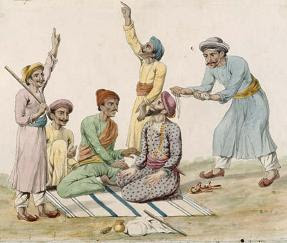
It’s still not estimated when exactly, and how, the cult originated, but historical accounts show, for instance, that the great moghul Aurangazeb was so disgusted by the menace that he ordered mass capture and beheading of the like. Later, probably sensing the futility of the exercise, he is reported to have agreed on pact with Thugees .
The pact spared their lives, but were banished and forbidden to exist anywhere imperial city of Delhi, instead having to confine their operations south of Yamuna river, or modern day madya pradesh.
Since then, up to the British arrived, the menace of thuggee was continued unabated. Travel , especially the long distance, was done in those days in bands of bullocks or horses. Thugs, in intimately concocted bands of varying proportions, befriended these regular travelers and won their trust. Then, at an opportune moment, they all sprung in unison with their rumaals, and sparing no one, choked the entire party to death. They buried the bodies in pre fabricated dugouts, and with incredible precision, moved on.
No travel, none at all, could be attempted in those days without a huge risk to life. Enter the BRITISH.
When the British controlled the entire subcontinent, they found themselves in direct conflict with thuggee. British trade routes were regularly intercepted by safety concerns and someone had to do something.
 The onus of eradicating this fell upon a young colonel from British east India company, one gentleman named colonel sleeman.Sleeman started out in a typical British fashion, he quietly gathered notes, harnessed evidence, deciphered the secretive communicative codes and de-wrapped the secret societies of the thuggies.Then, on her majesty's signal, sleeman unleashed what is perhaps the most organized campaigns on internal affairs in India. He systematically broke through networks, then coerced others into revealing other member's details, no mean task considering oaths of loyalty by its members. Through years of grueling trials and testimonies, he finally eradicated the scourge of Thugs throughout entire India, so much so, their name is hardly recognizable today.
The onus of eradicating this fell upon a young colonel from British east India company, one gentleman named colonel sleeman.Sleeman started out in a typical British fashion, he quietly gathered notes, harnessed evidence, deciphered the secretive communicative codes and de-wrapped the secret societies of the thuggies.Then, on her majesty's signal, sleeman unleashed what is perhaps the most organized campaigns on internal affairs in India. He systematically broke through networks, then coerced others into revealing other member's details, no mean task considering oaths of loyalty by its members. Through years of grueling trials and testimonies, he finally eradicated the scourge of Thugs throughout entire India, so much so, their name is hardly recognizable today.
It was a remarkable piece of internal policing by Her majesty's British Empire, famed more for conquering territories rathter than holding them.Later on, Rudyard Kipling would justify colonialism by his concept of "white man's burden" and , not without controversy, use the good deeds dilute the bad ones.

TODAY a small village in MP is named SlEEMANABAD , ostensibly in honor of this great Englishman.
EDUCATION:
Call center workers in India may barely know of anyone called LORD macauly, but if not for him the India as we know it might have talked in a totally different tongue.Lord macauly was a British civil servant who was posted in India for his intellectual capacities and ostensibly to aid the EAST India company to carry on its duties most fruitfully.India at that time, had no organized education system and knowledge and literature were imparted through higly decentralized system of Gurukools and master-sishya networks.

Macauly, perhaps dismayed by entire education system that existed, thundered that the entire literature of EAST was not worth a single SHELF of english boooks. Buoyed on by the glorious history that likes of shakesphere and baron had scripted for english by then, he was perhaps being unfair.
Neverthless, in his famous 1935's Macaulay’s Minutes, he set the groundwork to setup education system in India which would be largely based on english literature, thereby founding a anglicized base that we know of today.
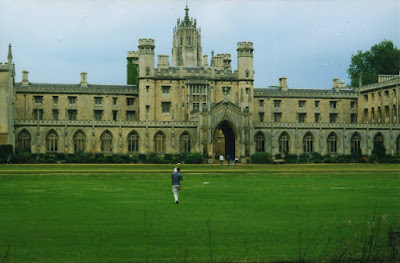
Later on, through numerous acts such as sadler act, University act of 1905, the British modernized, though not with full intent, the entire education system and molded into what we see today.
POLICE, Law and Order.
Old macauly had one more claim to fame before he was finished. Sitting atop his NILGIRI's bungalow, he wrote what is perhaps the most iconic book on criminal jurisdiction in the history of the world. Penning the monumental Indian penal code, he submitted it for approval to the governor in 1860. Enacted in 1861, the Indian penal code 1861 remains the blueprint for most of today's ipc which was enacted after independence, not without, some minor changes.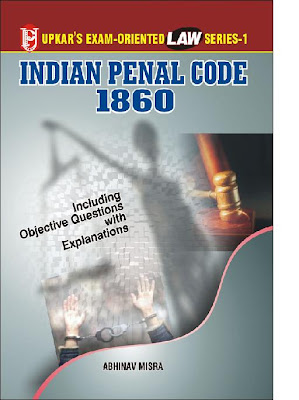
So comphrehensive is the Indian penal code, that its relavant and adaptable to conditions of 21st century, allowing for charging offences ranging from Cyber crime to Dowry deaths.
Of course, the old man was not free of the eccentricities of his day.
"EVETEASING" a novel Indian concept, was the teasing which usually accompanied the EVES or festivals like holi and dusshera, especially in the northern parts of the country was now a offence punishable by law!
_b_eve_teasing.jpg)
"Sodomy" and "unnatural offences" of course were strictly forbinden and morally repulsive in those victorian times. This section of ipc, the controversial section 377 has remained till today, until the recent delhi high court judgement which overrulled its validtiy.
Despite its absurdities, however, Macaulys IPC still remains one of the most defining moments in the history of the EMPIRE in India.
Later on, in view of curbing the raising “criminality” of the offences of the populace, the Police enacted the now infamous “Criminal Tribes Act” of 1870.

The idea was that some “Tribes” and Population groups were prone to acts of Criminality and devious behavior no matter what their Alma matter, background or parentage was.
Ramoshis, yerukalas, Gujjars and banjaras for eg, were made part of this dubious list and these populations were put under constant surveillance.Their movements were severely restricted and members of these groups had to constantly report to police stations about their activities.
Police manuals were written to consider these “Tribes” as offenders of any crime within a certain geographical unit until proven otherwise. Naturally this Act was inhumane and out of touch with ideals of Modern day Independent India, and was therefore repealed.
,_dated_1942.jpg)
However, the efficacy of this ACT was undoubtedly good and preemptive and did help curb the rising crime back then.
RULE OF THE LAW:
Hindu right wing today claims that Law existed during vedic times, and point at manusmriti , a edict codifying some rules , as their evidence. Neverthless, centuries of kingship and fuedalism have without doubt eroded these values and Pre British India was a Mishmash of arbitary law and punishment.
The British ,allowing for some literary liberties, largely invented the concept of RULE OF LAW.
To illustrate, let us take pre British Indian example.Punishments for crimes, for example, were given with regard to context and the background of the accused. A high born brahmin, even if accused of stealing , thus would be given less harsher punishment than a low born Dalit. Manusmirti explictily talks about pouring pot of boiling oil onto tongue of a dalit daring to utter vedas.similiarly, kings and their entourage, comprising of queens and princes, were oestensibly above the law. No matter what their crime, rarely , if ever, were they considered laible to be punished.This extended to entire nobility.
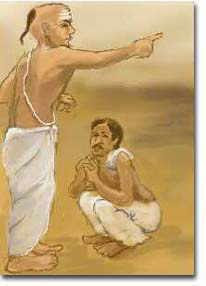
RULE OF LAW, as exemplified by British meant that everyone, from top to bottom was accountable and punishable by same code of laws. This also meant that what really ruled were not people, but laws.So a low born Indian coolie will get same punishment as a British serving officer, at least in principle.
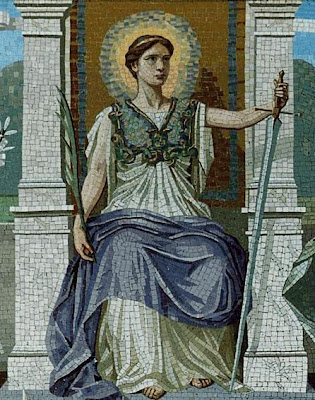
Naturally, as illbert bill of 1883 showed, the English deviated from such truly saintly concerns and were openly biased towards their fellow Englishmen.
Nevertheless, to the large masses of Indians, this meant equality in enforcement of laws and punishment if broken.A dalit, if he could employ a good lawyer, could challenge a Patel in rural Gujarat and WIN!
This concept was so revolutionary at that time that we rarely grasp its enormity now.
Even today, we Indians have problems in enforcing this concept and usually veer towards its native feudalism that existed in pre British times. This is perhaps why elite like DGP rathore manage to escape unscathed while the rest rot under teh unfair rule of lawlessness.

In vast swathes of UP and Bihar, law and order is a joke , and people rely on their native power equations of caste, money and contacts to fend for themselves.Rule of law, therefore, is a kind of endogenous change which was injected into India by an alien race, and has begun to fade away half a century after they left.












_b_eve_teasing.jpg)

,_dated_1942.jpg)



No comments:
Post a Comment